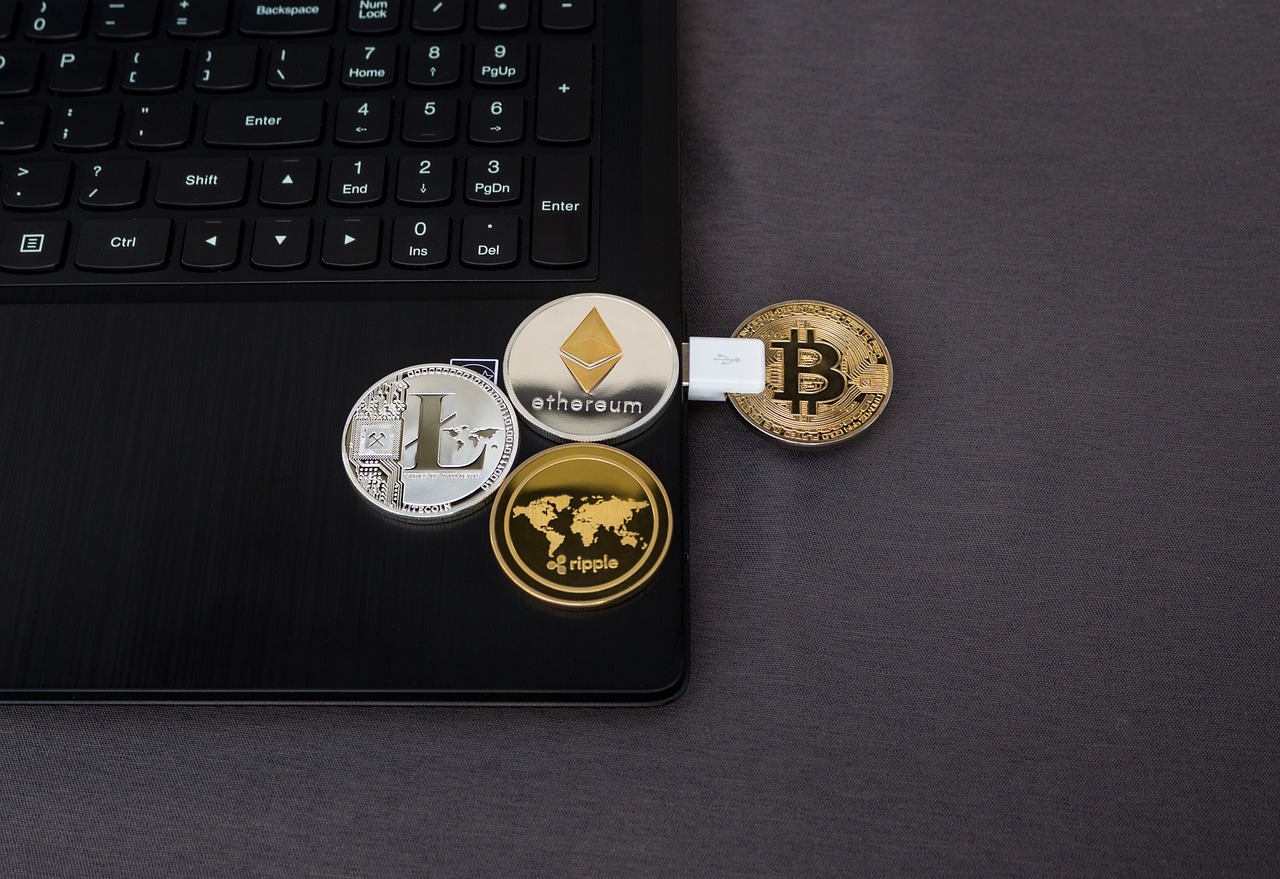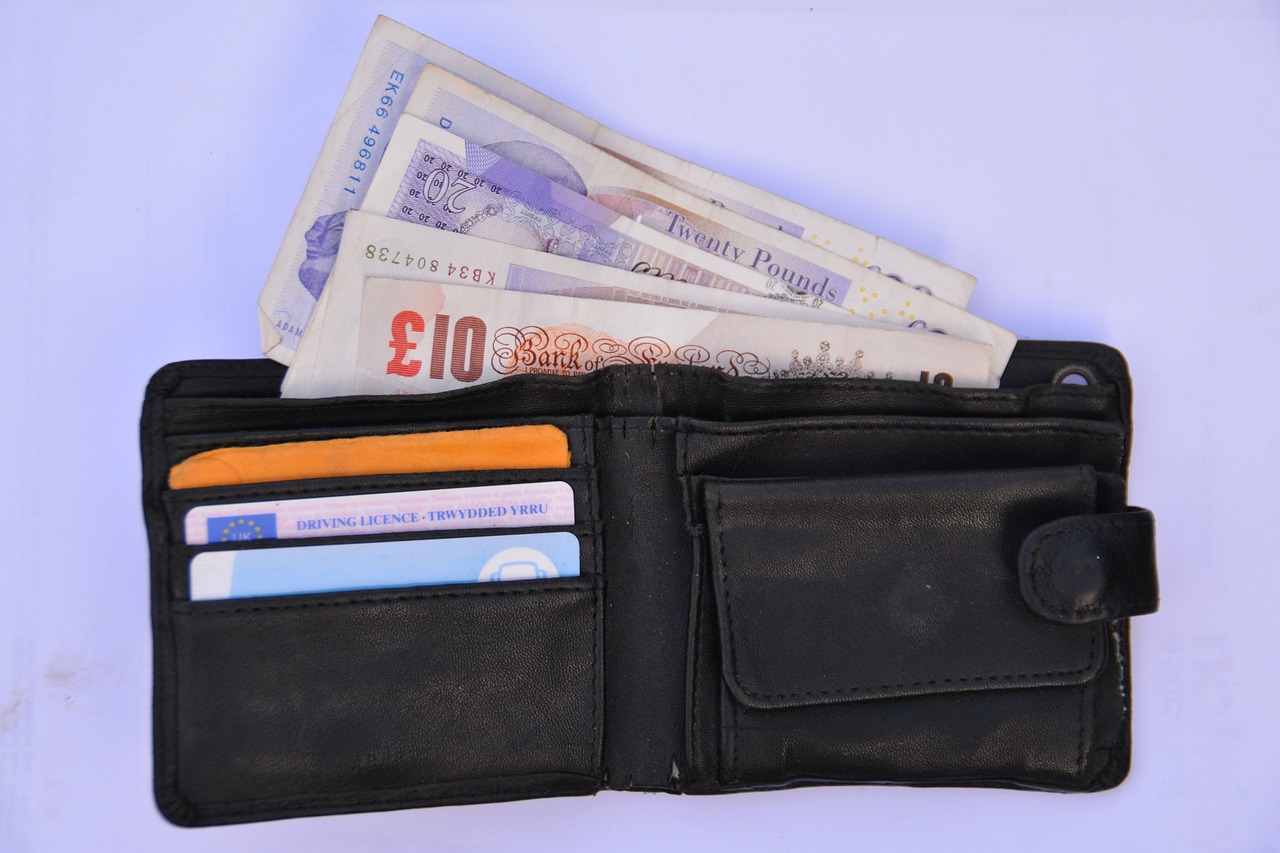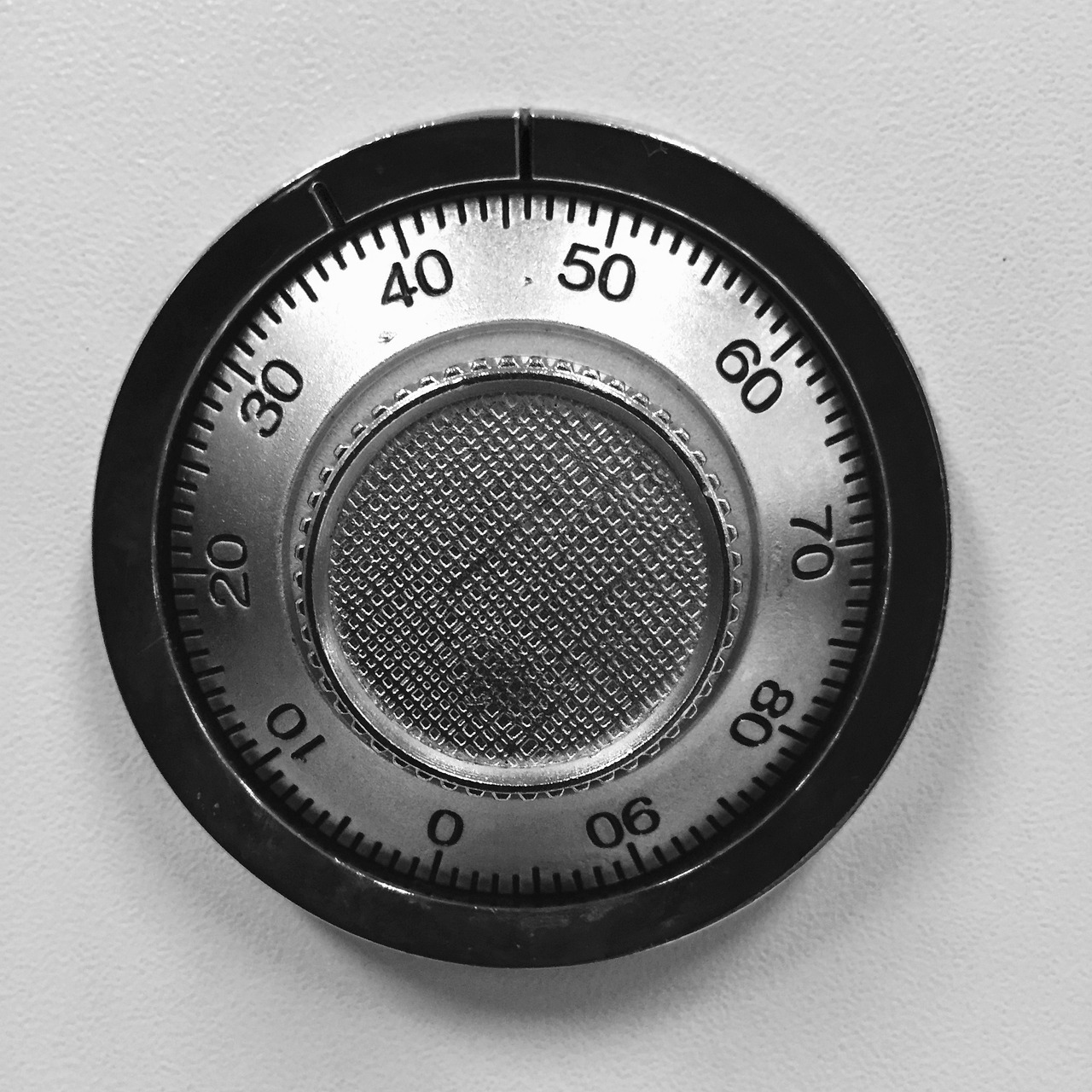How to Use Wallets for Enhanced Customer Experiences
In today's fast-paced digital world, the way we shop has transformed dramatically. One of the most significant changes is the rise of digital wallets. These virtual tools are not just about storing your payment information; they are revolutionizing the entire shopping experience. Imagine walking into a store, grabbing what you need, and checking out in seconds without fumbling for cash or cards. Sounds like a dream, right? Well, that's the reality digital wallets offer. They enhance customer interactions, streamline transactions, and foster loyalty, making shopping not just easier but more enjoyable.
So, how do digital wallets achieve this? First, they consolidate multiple payment methods into one convenient app on your smartphone. This means you can pay with just a tap, whether you're at a physical store or shopping online. Moreover, digital wallets often come packed with features that cater specifically to customer needs, such as transaction history, budgeting tools, and even rewards programs that encourage repeat business. In essence, they serve as a one-stop-shop for managing your finances while shopping.
But let's not stop there. The benefits of digital wallets extend beyond mere convenience. They also play a pivotal role in building trust between customers and businesses. With advanced security measures, digital wallets ensure that your sensitive information is protected. This is crucial in a world where data breaches are all too common. When customers feel secure, they are more likely to engage with a brand, make purchases, and return for future transactions. It's a win-win situation that enhances overall customer satisfaction.
As we delve deeper into the capabilities of digital wallets, you'll discover how they not only improve the customer experience but also offer businesses a unique opportunity to engage with their audience in ways that were previously unimaginable. From personalized promotions to streamlined payment processing, digital wallets are here to stay, and they are reshaping the landscape of retail and e-commerce.
Digital wallets are essentially virtual versions of your physical wallet. They store payment information securely, allowing users to make transactions conveniently and quickly. But how do they work? When you link your credit or debit card to a digital wallet, the app encrypts your sensitive information and stores it in a secure environment. When you make a purchase, instead of sharing your card details with the merchant, the wallet generates a unique token that represents your payment information, ensuring that your actual card details remain confidential.
The benefits of digital wallets are numerous, not just for customers but also for businesses. For customers, the convenience of having all their payment methods in one place cannot be overstated. No more digging through bags for loose change or searching for that elusive credit card; everything is just a tap away. For businesses, accepting digital wallet payments can lead to increased sales, as customers are more likely to make impulse purchases when the transaction process is quick and easy.
When it comes to using digital wallets, customers enjoy a plethora of benefits that significantly enhance their shopping experience. Here are some key advantages:
- Faster Transactions: Digital wallets allow for quick checkouts, reducing the time spent waiting in line.
- Enhanced Security: With robust security features, customers can shop with peace of mind knowing their information is protected.
- Rewards Programs: Many digital wallets offer rewards for using them, providing incentives for customers to choose this payment method.
These features not only improve convenience but also create a more enjoyable shopping experience, encouraging customers to return again and again. When customers know they can trust the payment process and enjoy perks for using digital wallets, they're more likely to engage with brands that offer these options.
One of the most critical aspects of digital wallets is their security features. In an age where data breaches are rampant, customers are rightfully concerned about the safety of their personal information. Digital wallets employ advanced security measures such as encryption and two-factor authentication to ensure that customer information remains safe. This builds trust, which is essential for fostering long-term relationships between customers and businesses.
Encryption is a vital component of digital wallet security. It scrambles your sensitive data into an unreadable format that can only be decrypted by authorized parties. This means that even if a malicious actor intercepts your data, they won't be able to make sense of it. Various encryption techniques are utilized, including:
- Symmetric Encryption: Uses the same key for both encryption and decryption.
- Asymmetric Encryption: Utilizes a pair of keys, one for encryption and another for decryption.
Another layer of security comes from two-factor authentication (2FA). This method requires users to provide two different types of information to access their accounts, such as a password and a one-time code sent to their mobile device. This extra step significantly reduces the risk of unauthorized access, ensuring that only the rightful owner can access their wallet.
Digital wallets are designed with convenience in mind. They significantly enhance transaction speed, allowing for quick checkouts that benefit both customers and retailers. Imagine walking into a store, grabbing your items, and checking out in mere seconds—no more digging for cash or cards! This convenience leads to higher customer satisfaction and can even increase sales for businesses, as customers are more likely to make impulse purchases when the checkout process is seamless.
For businesses, integrating digital wallets into their operations can lead to enhanced customer engagement and streamlined processes. By adopting digital wallet technology, businesses can offer customers a modern shopping experience that meets their expectations.
Choosing the right payment processing solution is crucial for seamless wallet integration. Businesses need to consider factors such as transaction fees, ease of use, and compatibility with existing systems. A well-chosen payment processing solution can make all the difference in providing a smooth experience for customers.
Digital wallets also open up unique marketing opportunities. Businesses can utilize data from digital wallets to create personalized promotions and loyalty programs that resonate with their customers. By analyzing purchasing behavior, businesses can tailor their marketing efforts to meet specific customer needs, ultimately boosting retention and loyalty.
Q: What are digital wallets?
A: Digital wallets are apps that store payment information securely, allowing users to make transactions conveniently.
Q: How do digital wallets enhance security?
A: They use advanced security measures such as encryption and two-factor authentication to protect user information.
Q: Can businesses benefit from digital wallets?
A: Yes, businesses can streamline operations, enhance customer engagement, and create personalized marketing opportunities through digital wallets.

Understanding Digital Wallets
In today's fast-paced digital world, digital wallets have emerged as a game-changer for both consumers and businesses alike. But what exactly are these wallets, and how do they function? At their core, digital wallets are applications or software that store payment information securely, allowing users to make transactions conveniently with just a few taps on their smartphones or devices. Imagine walking into a store, grabbing what you need, and checking out in seconds without fumbling for cash or cards. That's the power of digital wallets!
Digital wallets work by linking your bank account, credit card, or debit card to the wallet app. When you make a purchase, the wallet generates a unique transaction code that securely transmits your payment information to the merchant, eliminating the need to share sensitive data directly. This process not only speeds up transactions but also enhances security, making it a win-win for everyone involved. The benefits of digital wallets extend beyond just convenience; they also offer a range of features that can significantly enhance the shopping experience.
For customers, the advantages are plentiful. Here’s a quick rundown of some key benefits:
- Faster Transactions: No more waiting in long lines; digital wallets allow quick and easy checkouts.
- Enhanced Security: With advanced security measures in place, customers can shop with peace of mind.
- Rewards Programs: Many digital wallets come with built-in loyalty programs, offering customers rewards for their purchases.
Moreover, businesses can also reap the rewards of integrating digital wallets into their payment systems. By doing so, they can streamline operations, reduce transaction times, and foster a more engaging shopping environment. As we delve deeper into this topic, we will explore how digital wallets not only simplify transactions but also create a more personalized shopping experience for consumers.
In summary, understanding digital wallets is crucial for both customers and businesses in today's digital landscape. They offer a seamless, secure, and efficient way to handle transactions, making shopping easier and more enjoyable. As we continue, we’ll unpack the various benefits that digital wallets bring to the table, ensuring you’re well-equipped to navigate this exciting evolution in payment technology.

Benefits for Customers
In today's fast-paced world, digital wallets have emerged as a game-changer for consumers. Imagine walking into a store, grabbing what you need, and checking out without fumbling for cash or cards. Sounds like a dream, right? Well, that's the reality digital wallets offer. They provide a plethora of benefits that not only enhance the shopping experience but also make life a whole lot easier.
One of the most significant advantages is the speed of transactions. With just a few taps on your smartphone, you can complete your purchase in seconds. This is especially beneficial during busy shopping seasons or at crowded events where long lines can lead to frustration. Customers can enjoy a seamless checkout process, allowing them to spend more time enjoying their shopping experience rather than waiting around.
Moreover, digital wallets are designed with security at their core. They utilize advanced technology to protect sensitive information, which is a major concern for many shoppers. For instance, when you use a digital wallet, your actual card numbers are not shared with the merchant, reducing the risk of fraud. This level of security fosters trust, encouraging more people to embrace this technology. The combination of convenience and safety creates a shopping environment where customers feel empowered.
Another enticing feature is the availability of rewards programs. Many digital wallets come with built-in loyalty programs that allow customers to earn points or cashback on their purchases. This not only incentivizes repeat business but also adds a layer of excitement to shopping. Who doesn’t love the idea of earning rewards while they shop? It’s like finding a little treasure with every transaction!
Furthermore, the integration of digital wallets with various merchants allows for personalized offers. Imagine receiving a notification for a discount just as you walk into a store you love. This level of personalization enhances the overall customer experience, making shopping not just a task but an enjoyable adventure. With tailored promotions, customers feel valued and understood, leading to increased loyalty and satisfaction.
To summarize, the benefits of digital wallets for customers are numerous and impactful. They provide:
- Faster transactions for a more efficient shopping experience.
- Enhanced security to protect personal information.
- Rewards programs that incentivize purchases.
- Personalized offers that make shopping more engaging.
In a world where convenience is king, digital wallets stand out as a powerful tool that transforms the way we shop. They not only simplify transactions but also create a more enjoyable and secure shopping experience. So, why not embrace this digital revolution and enjoy all the benefits it has to offer?
Q: Are digital wallets safe to use?
A: Yes, digital wallets employ advanced security features like encryption and two-factor authentication to protect your information.
Q: Can I use a digital wallet for online and in-store purchases?
A: Absolutely! Digital wallets are versatile and can be used for both online transactions and in-store purchases.
Q: How do rewards programs work with digital wallets?
A: Many digital wallets offer integrated rewards programs that allow you to earn points or cashback with each purchase, which can be redeemed later.
Q: What if I lose my phone?
A: Most digital wallets have features that allow you to remotely lock or wipe your wallet, ensuring your information remains secure.

Security Features
In today's digital age, where online transactions are as common as morning coffee, the of digital wallets play a pivotal role in ensuring user trust. Imagine walking into a store and leaving your wallet behind; it sounds risky, right? Now, think of a digital wallet as your personal bodyguard, standing guard over your financial information. These wallets utilize advanced technologies to keep your sensitive data safe, making every transaction feel like a breeze.
One of the most significant security measures employed by digital wallets is encryption. This process transforms your payment information into a code that is nearly impossible to decipher without the right decryption key. Picture it like sending a secret message that only you and the recipient can understand. Encryption methods vary, but they all serve the same purpose: to shield your data from prying eyes. For instance, many wallets use AES (Advanced Encryption Standard) which is widely recognized for its robust security.
Another layer of protection comes from two-factor authentication (2FA). This is akin to having a double lock on your front door. Even if someone manages to get hold of your password, they would still need a second form of verification to access your account. Typically, this involves receiving a unique code via SMS or an authentication app. It’s a simple yet effective way to ensure that your personal information remains yours alone.
To illustrate how these security features work together, consider the following table:
| Security Feature | Description | Benefit |
|---|---|---|
| Encryption | Transforms sensitive data into a secure format | Protects data from unauthorized access |
| Two-Factor Authentication | Requires a second form of verification | Enhances account security |
| Fraud Monitoring | Constantly checks for unusual activity | Alerts users of potential fraud |
Additionally, many digital wallets incorporate fraud monitoring systems that scan transactions in real-time. This is like having a security camera that alerts you if something suspicious occurs. If a transaction looks out of the ordinary, users are notified immediately, allowing them to take action before any damage is done. This proactive approach not only enhances security but also builds confidence in the user experience.
In conclusion, the security features of digital wallets are not just technical jargon; they are essential components that create a safe shopping environment. By employing encryption, two-factor authentication, and fraud monitoring, digital wallets transform the way we perceive online transactions. They allow users to shop with peace of mind, knowing that their financial information is well-guarded. So, the next time you reach for your digital wallet, remember that it’s not just a tool for convenience, but a fortress protecting your hard-earned money.
- What is a digital wallet? A digital wallet is a secure way to store payment information electronically, allowing for quick and easy transactions.
- How does encryption work in digital wallets? Encryption converts sensitive data into a coded format that can only be accessed by authorized users with the correct decryption key.
- Why is two-factor authentication important? It adds an extra layer of security by requiring a second form of verification, making it harder for unauthorized users to access your account.
- Can digital wallets help prevent fraud? Yes, many digital wallets have built-in fraud monitoring systems that alert users to suspicious activities in real-time.

Encryption Methods
When it comes to the security of digital wallets, encryption is the unsung hero. It acts like a secret code that protects your sensitive information from prying eyes. Imagine it as a digital vault where your payment details, personal data, and transaction history are locked away safely. There are various encryption techniques used to safeguard this data, and understanding them can give you peace of mind as you navigate the world of online shopping.
One of the most common methods is Advanced Encryption Standard (AES). This technique uses a symmetric key algorithm, which means the same key is used for both encrypting and decrypting the data. Think of it as having a key to your house that not only locks the door but also unlocks it. AES is widely trusted and is utilized by governments and financial institutions around the globe.
Another important method is the RSA algorithm, which is an asymmetric encryption technique. In this case, two keys are used: a public key to encrypt the data and a private key to decrypt it. It’s like sending a locked box to a friend; only they have the key to open it. This method ensures that even if someone intercepts the data, they won't be able to access it without the private key.
Moreover, many digital wallets employ Transport Layer Security (TLS) to protect data during transmission. This protocol creates a secure connection between your device and the server, much like a secure tunnel that keeps everything safe while traveling. TLS encrypts the data being sent, ensuring that even if someone tries to eavesdrop, all they’ll hear is a jumbled mess of information.
It's essential to recognize that these encryption methods work together to create a robust security framework. Businesses using digital wallets must stay updated on the latest encryption technologies to protect their customers. By investing in strong encryption, they not only secure transactions but also build trust with their users, fostering a loyal customer base that feels safe while shopping.
In summary, understanding encryption methods is crucial for anyone using digital wallets. The combination of AES, RSA, and TLS creates a formidable barrier against potential threats, ensuring that your financial information remains confidential and secure. As technology evolves, so too will these methods, but the fundamental principle remains the same: protecting your data is paramount.
- What is encryption in digital wallets?
Encryption is a process that secures your sensitive information by converting it into a code that can only be deciphered by authorized users. - How does AES encryption work?
AES uses the same key for both encrypting and decrypting data, providing a secure method for protecting information. - Why is two-factor authentication important?
Two-factor authentication adds an extra layer of security by requiring users to provide two forms of identification before accessing their accounts. - Can I trust digital wallets?
Yes, as long as they employ strong encryption methods and security protocols, digital wallets can be very safe for transactions.

Two-Factor Authentication
Two-factor authentication (2FA) is a powerful security feature that adds an extra layer of protection to digital wallets, ensuring that only authorized users can access their accounts. Imagine your wallet is a safe, and 2FA is the additional lock that keeps it secure. When you log in or make a transaction, 2FA requires not just your password but also a second piece of information that only you should have, such as a code sent to your mobile device. This means that even if someone manages to steal your password, they won’t be able to access your wallet without that second factor.
In today’s digital age, where breaches and cyber threats are rampant, the importance of 2FA cannot be overstated. It enhances user trust, as customers feel more secure knowing that their sensitive financial information is safeguarded. A study showed that accounts secured with 2FA are 99.9% less likely to be compromised, which is a staggering statistic that highlights its effectiveness.
Here’s how two-factor authentication typically works in digital wallets:
- Step 1: User enters their username and password.
- Step 2: A verification code is sent to the user’s registered mobile device via SMS, email, or an authentication app.
- Step 3: User enters the verification code to complete the login process.
This multi-step process ensures that even if a hacker has your password, they would still need access to your mobile device to gain entry. This is crucial for maintaining the integrity of your financial transactions and personal data.
Moreover, many digital wallets offer flexibility in how users can implement 2FA. You might encounter options such as biometric authentication, which uses fingerprints or facial recognition as a second factor. This not only enhances security but also adds a layer of convenience, as you don’t have to remember another code. The integration of such technologies into digital wallets is a testament to how far we’ve come in prioritizing user security.
In conclusion, two-factor authentication is not just an added feature; it is a necessary component of modern digital wallet security. As customers become more aware of the potential risks associated with online transactions, the presence of robust security measures like 2FA can significantly enhance their overall experience. Businesses that implement 2FA can foster greater trust and loyalty among their customers, ultimately leading to a more secure and satisfying shopping experience.
- What is two-factor authentication?
Two-factor authentication is a security process that requires two different forms of identification to access an account, enhancing security beyond just a password. - How does two-factor authentication work?
After entering your password, a second verification step is required, usually involving a code sent to your mobile device. - Is two-factor authentication necessary for digital wallets?
Yes, it significantly increases the security of your account and protects against unauthorized access. - Can I use biometric authentication as a second factor?
Yes, many digital wallets offer biometric options such as fingerprint or facial recognition as a form of two-factor authentication.

Convenience and Speed
When it comes to shopping, who doesn’t love a quick and hassle-free experience? Digital wallets have revolutionized the way we handle transactions, bringing a level of convenience and speed that traditional payment methods simply can't match. Imagine walking into a store, grabbing your items, and checking out in mere seconds—this is the reality that digital wallets create. With just a tap or a scan, customers can complete their purchases without fumbling for cash or cards.
One of the standout features of digital wallets is their ability to streamline the checkout process. Instead of waiting in long lines, customers can use their smartphones to pay instantly. This is particularly beneficial during busy shopping seasons or events where crowds can be overwhelming. Retailers equipped with digital wallet technology can enhance their operational efficiency, ensuring that customers spend less time waiting and more time enjoying their shopping experience. It’s like having a VIP pass to the checkout line!
Moreover, the integration of digital wallets into various platforms means that customers can enjoy a seamless shopping experience across different channels—whether they are shopping online or in-store. For instance, a customer can add items to their cart online, and when they’re ready to check out, they can simply use their digital wallet for a swift transaction. This omnichannel experience not only saves time but also eliminates the need for multiple payment methods, making it easier for customers to manage their finances.
But wait, there’s more! Digital wallets often come with features that allow users to store loyalty cards, coupons, and even tickets. This means that customers can have everything they need in one place, reducing the clutter in their wallets and making it easier to access rewards and discounts. Imagine the joy of not having to dig through your bag for that loyalty card while at the checkout—sounds pretty appealing, right?
In addition, the speed of transactions through digital wallets is often enhanced by features like one-click payments and saved payment information. Customers can set up their wallets to remember their payment details, which means they won’t have to enter their credit card numbers every time they shop. This not only speeds up the checkout process but also minimizes the chances of errors, ensuring a smoother transaction overall.
To illustrate the impact of convenience and speed, consider the following table that compares traditional payment methods with digital wallets:
| Feature | Traditional Payment Methods | Digital Wallets |
|---|---|---|
| Transaction Speed | Slower (involves cash handling or card swiping) | Instant (tap or scan) |
| Convenience | Requires physical cash or cards | All-in-one solution on a smartphone |
| Loyalty Integration | Separate cards needed | Stored within the wallet |
| Error Rate | Higher (due to manual entry) | Lower (automated and saved information) |
In conclusion, the convenience and speed offered by digital wallets significantly enhance the overall shopping experience for consumers. By reducing transaction times and simplifying the payment process, these wallets not only make life easier for customers but also help businesses improve their efficiency and customer satisfaction. It’s a win-win situation that reflects the evolving nature of retail in our fast-paced digital world.
- What are digital wallets? Digital wallets are applications that allow users to store payment information securely and make transactions conveniently using their smartphones.
- How do digital wallets improve transaction speed? They enable quick checkouts through features like one-click payments and saved payment details, reducing the time spent at the register.
- Are digital wallets secure? Yes, they use advanced security measures such as encryption and two-factor authentication to protect user information.
- Can I store loyalty cards in a digital wallet? Absolutely! Many digital wallets allow users to store loyalty cards, coupons, and tickets, making them a convenient all-in-one solution.

Integrating Wallets into Business Models
In today's fast-paced digital world, integrating digital wallets into business models is no longer just an option; it's a necessity. Businesses that embrace this technology not only streamline their operations but also create a more engaging customer experience. Imagine walking into a store, grabbing what you need, and checking out in seconds—all without fumbling for cash or cards. That's the power of digital wallets!
To successfully integrate digital wallets, businesses need to consider several key factors. First and foremost, they should evaluate the payment processing solutions available. Choosing the right platform can make or break the implementation process. A robust payment processing solution should support multiple wallet options, ensuring that customers can use their preferred method. This flexibility is crucial for enhancing customer satisfaction.
Moreover, businesses should not overlook the importance of marketing opportunities that digital wallets present. For instance, companies can leverage wallet features to offer personalized promotions directly to users. Imagine receiving a special discount just as you walk into your favorite store. This kind of targeted marketing not only drives sales but also fosters customer loyalty. Additionally, implementing loyalty programs through digital wallets can encourage repeat purchases, creating a win-win situation for both the business and the consumer.
As an example, consider a local coffee shop that integrates a digital wallet. They could offer customers the ability to pay via their preferred wallet app, while also providing a loyalty program that rewards customers with points for every purchase. Over time, these points could accumulate and be redeemed for a free drink or pastry, making customers feel valued and appreciated. This strategy not only enhances the shopping experience but also encourages customers to return.
Furthermore, businesses should be aware of the security features associated with digital wallets. Ensuring that customer data is protected through encryption and two-factor authentication is essential for building trust. Customers are more likely to engage with businesses that prioritize their security, which can lead to increased transactions and customer loyalty.
In conclusion, integrating digital wallets into business models is a strategic move that can significantly enhance customer experiences. By focusing on effective payment processing solutions and leveraging marketing opportunities, businesses can create a seamless and engaging shopping environment. The future of retail lies in the hands of those who embrace these digital innovations and prioritize their customers' needs.
- What are digital wallets?
Digital wallets are applications that allow users to store payment information securely and make transactions quickly and conveniently.
- How do digital wallets enhance customer experiences?
They provide faster transactions, enhanced security, and personalized marketing opportunities, making shopping more enjoyable.
- What security features do digital wallets offer?
Digital wallets use encryption and two-factor authentication to protect sensitive customer information during transactions.
- How can businesses integrate digital wallets?
By choosing the right payment processing solutions and utilizing marketing opportunities, businesses can effectively incorporate digital wallets into their operations.

Payment Processing Solutions
In the fast-paced world of digital commerce, choosing the right payment processing solution is not just a matter of convenience; it's a crucial step towards ensuring a seamless customer experience. When businesses integrate digital wallets, they open the door to a plethora of opportunities that can enhance operational efficiency and customer satisfaction. But how do you know which payment processing solution is the right fit for your business? To answer this, let’s delve into some key considerations.
First and foremost, businesses must evaluate the transaction fees associated with different payment processors. These fees can vary widely, impacting your bottom line. For instance, some providers charge a flat rate per transaction, while others may take a percentage of the sale. Understanding these costs is essential for effective budgeting and pricing strategies. Here’s a simple comparison of common fee structures:
| Payment Processor | Flat Fee | Percentage Fee |
|---|---|---|
| Processor A | $0.30 | 2.9% |
| Processor B | $0.25 | 3.5% |
| Processor C | $0.50 | 2.5% |
Next, consider the security features offered by the payment processor. In an age where data breaches are all too common, ensuring that customer information is protected is non-negotiable. Look for processors that offer robust security measures, such as PCI compliance, encryption, and fraud detection tools. These features not only protect your customers but also build trust, which is invaluable in retaining loyal clients.
Another critical factor is the ease of integration with your existing systems. A payment processing solution should seamlessly integrate with your e-commerce platform, CRM, and inventory management systems. This integration minimizes disruptions and allows for a smoother workflow. If the solution is too complicated to implement, it could lead to delays and frustrations for both your staff and customers.
Moreover, you should also assess the customer support provided by the payment processor. Issues can arise at any time, and having reliable support can make all the difference. Check for availability of support channels such as live chat, email, or phone support. A provider that offers 24/7 assistance can help ensure that any problems are swiftly resolved, keeping your operations running smoothly.
Lastly, consider the customer experience. A good payment processing solution should not only be efficient but also enhance the overall shopping experience. Look for features like saved payment information, one-click payments, and easy refunds. These capabilities can significantly reduce cart abandonment rates and increase customer satisfaction.
In summary, selecting the right payment processing solution involves a careful evaluation of transaction fees, security features, ease of integration, customer support, and the overall customer experience. By taking the time to assess these factors, businesses can leverage digital wallets to not only streamline their operations but also create a more engaging and satisfying shopping experience for their customers.
- What is a digital wallet? A digital wallet is a secure application that allows users to store payment information and make transactions electronically.
- How do digital wallets improve customer experience? They offer faster transactions, enhanced security, and the ability to earn rewards, making shopping more convenient and enjoyable.
- Are digital wallets safe to use? Yes, they employ advanced security measures such as encryption and two-factor authentication to protect user information.
- Can businesses benefit from digital wallets? Absolutely! They can streamline operations, enhance customer engagement, and offer personalized marketing opportunities.

Marketing Opportunities
In today's fast-paced digital world, businesses are constantly seeking innovative ways to connect with their customers. One of the most exciting avenues for enhancing customer interaction lies in the realm of digital wallets. These wallets not only facilitate smooth transactions but also open up a treasure trove of that can significantly boost customer retention and engagement.
Imagine walking into your favorite coffee shop and, as you pay with your digital wallet, you receive a notification offering a 10% discount on your next purchase. This is just one example of how businesses can leverage digital wallets to create personalized promotions that resonate with customers. By analyzing purchase history and preferences, companies can tailor offers that feel unique and relevant, fostering a deeper connection with their clientele.
Moreover, digital wallets can be integrated with loyalty programs, allowing customers to earn rewards seamlessly. For instance, every time a customer makes a purchase using their digital wallet, they could automatically accumulate points towards free products or exclusive discounts. This not only incentivizes repeat purchases but also transforms the shopping experience into something more engaging and rewarding.
To further illustrate the potential of digital wallets in marketing, consider the following table that outlines various marketing strategies that businesses can implement:
| Strategy | Description | Benefits |
|---|---|---|
| Personalized Promotions | Offers tailored to individual customer preferences. | Increased customer satisfaction and loyalty. |
| Loyalty Programs | Reward systems integrated with wallet transactions. | Encourages repeat purchases and enhances brand loyalty. |
| Targeted Notifications | Real-time alerts for special offers or events. | Improves customer engagement and drives foot traffic. |
Additionally, the ability to send targeted notifications directly to customers' devices through their digital wallets is a game-changer. These notifications can inform customers about flash sales, new arrivals, or exclusive events, creating a sense of urgency that compels them to act quickly. Think of it as a virtual nudge that keeps your brand at the forefront of their minds.
It's also worth noting that digital wallets can enhance social sharing capabilities. Customers can easily share their rewards or promotions on social media, creating organic buzz around your brand. This word-of-mouth marketing is invaluable, as potential customers are more likely to trust recommendations from friends and family over traditional advertising.
In conclusion, the marketing opportunities presented by digital wallets are vast and varied. By harnessing the power of personalized promotions, loyalty programs, targeted notifications, and social sharing, businesses can not only improve customer experiences but also foster lasting relationships that lead to increased sales and brand loyalty. The future of retail is not just about transactions; it's about creating meaningful connections that keep customers coming back for more.
- What is a digital wallet? A digital wallet is an electronic version of a physical wallet that securely stores payment information and allows users to make transactions easily.
- How do digital wallets enhance security? Digital wallets use advanced security measures such as encryption and two-factor authentication to protect sensitive information.
- Can businesses benefit from using digital wallets? Yes, businesses can leverage digital wallets to streamline transactions, enhance customer engagement, and create personalized marketing opportunities.
- What are loyalty programs, and how do they work with digital wallets? Loyalty programs reward customers for repeat purchases, and when integrated with digital wallets, they allow customers to earn points automatically with each transaction.
Frequently Asked Questions
- What is a digital wallet?
A digital wallet is a secure online application that allows users to store payment information, such as credit and debit card details, enabling them to make transactions conveniently and quickly. Think of it as a virtual version of your physical wallet, but with added security features!
- How do digital wallets enhance customer experiences?
Digital wallets improve customer experiences by offering faster transactions, enhanced security, and convenient access to loyalty programs. Imagine breezing through checkout lines without fumbling for cash or cards!
- Are digital wallets safe to use?
Yes, digital wallets are designed with advanced security measures such as encryption and two-factor authentication. These features protect your sensitive information, making them safer than carrying cash or cards.
- What are encryption methods used in digital wallets?
Encryption methods include techniques that scramble your data, making it unreadable to unauthorized users. This ensures that even if someone intercepts your transaction, they can't access your personal information.
- What is two-factor authentication?
Two-factor authentication adds an extra layer of security by requiring not just a password but also a second form of verification, like a code sent to your phone. It's like having a double lock on your front door!
- How do businesses benefit from integrating digital wallets?
Businesses can streamline operations and enhance customer engagement through digital wallets by simplifying payment processing and offering personalized marketing opportunities, such as tailored promotions based on customer behavior.
- What should businesses consider when choosing a payment processing solution?
When selecting a payment processing solution, businesses should consider factors like transaction fees, compatibility with existing systems, customer support, and the ability to integrate with digital wallets effectively.
- Can digital wallets help with customer loyalty programs?
Absolutely! Digital wallets can facilitate loyalty programs by allowing businesses to offer rewards and personalized promotions directly through the wallet, making it easier for customers to engage and earn benefits.



















